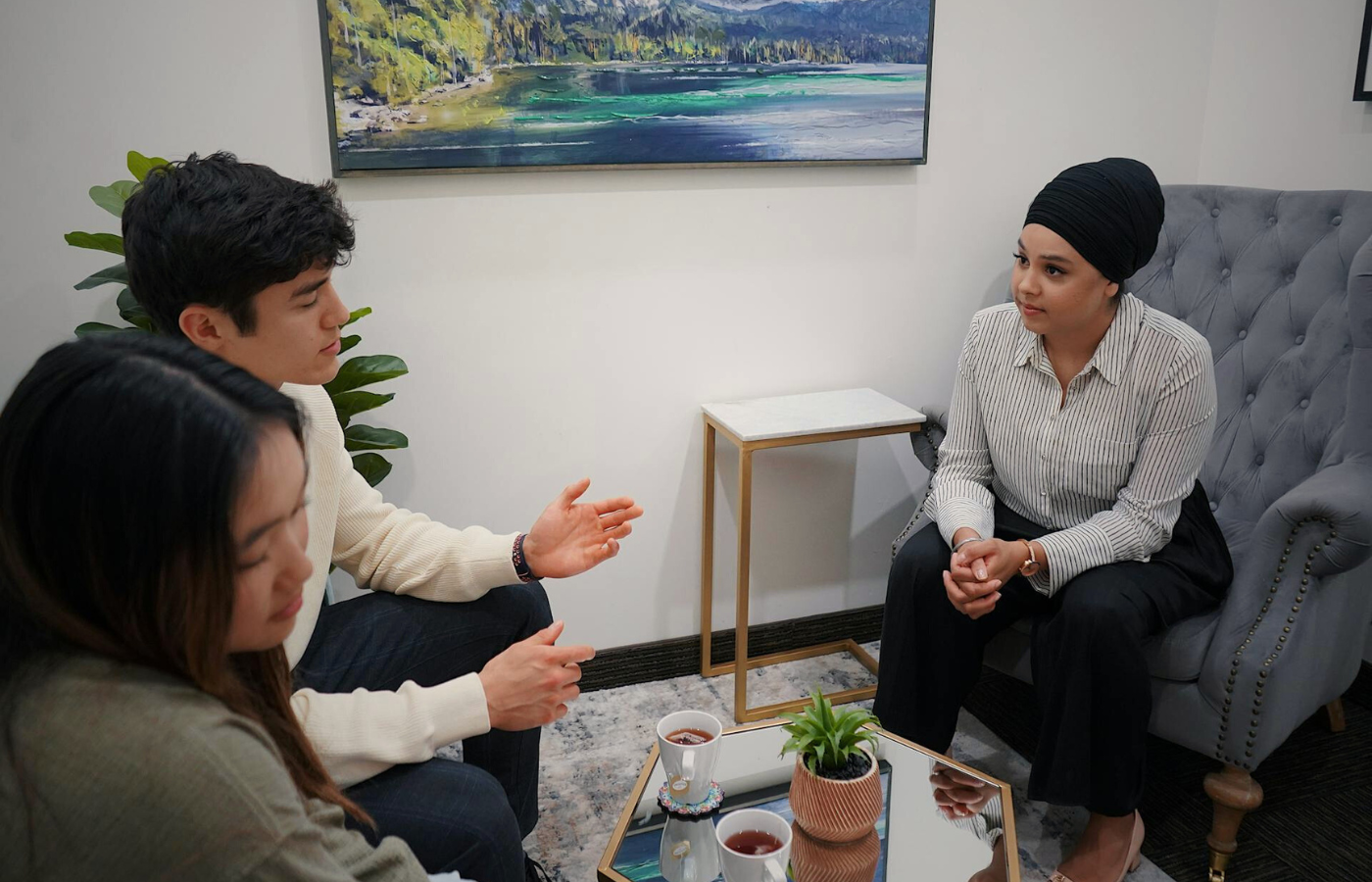When people think of couples counselling they may picture a relationship on the brink, tense silences, raised voices, and a last attempt to hold things together. But that’s only part of the story. In reality, couples counselling, or as some may call it, couples therapy, can be a proactive and powerful tool for deepening connection, improving communication, and strengthening your relationship long before things reach a breaking point.
In fact, one of the benefits of seeking support early is the chance to address relationship issues before they escalate (Jalalvand et al., 2023). Much like a routine check-up for your health, proactive couples counselling can give your relationship space to reflect, reset, and grow, even when everything feels “fine.”

The Case for Proactive Couples Counselling
Two things can be true at once. Love is important to the foundation of a romantic relationship and healthy relationships take ongoing effort. That’s part of the reason couples may seek support from a counselling service as a proactive choice, rather than a reactive one.
Here’s how relationship counselling can be a powerful tool for long-term wellbeing (Jalalvand et al., 2023):
- Strengthening your foundation: Even strong relationships can benefit from support. Counselling can help partners improve communication, develop shared goals, and stay emotionally connected during everyday life
- Identifying subtle issues early: A skilled couples therapist can help uncover patterns that might seem small now but could grow into bigger issues later - like resentment, miscommunication, or avoidance.
- Learning better communication tools: Another goal of couples therapy can be to support healthier conversations. That includes learning how to express needs clearly, active listening, and how to disagree in respectful manner.
When couples address these areas early, they may find themselves more resilient during difficult times and could even be more able to reconnect when they drift apart (Jalalvand et al., 2023).

When to Start Couples Therapy
There’s no one size fits all approach around when to begin therapy. A couple may start counselling when they are in crisis, however you do not have to wait until things are urgent to have your first session. You may like to consider when to start couples therapy based on key life stages or shifts in the relationship dynamic.
Some reasons couples seek therapy include:
- Moving in together or getting married
- Having children or navigating parenting differences
- Career changes or financial stress
- Feeling more like roommates than partners
- Just wanting to strengthen the bond
Remember, you don’t need to be in a crisis to benefit. If you're asking whether counselling could help, that may be a good sign to begin!

Support for Life Transitions
Life rarely stays the same indefinitely. Major transitions like becoming parents, changing careers, or entering new phases of life, can challenge even the healthiest partnerships. During these times, therapy for couples can provide structure, empathy, and practical tools to support each other.
Here’s how couples counselling can help you prepare for and adjust to life’s shifts (Abreu-Afonso et al., 2022):
- Parenthood: Welcoming a baby invites much change. Counselling may help couples align on roles, expectations, and how to keep intimacy alive during this demanding period.
- Work and stress: Job changes or burnout can impact emotional availability at home. Therapy can help couples stay connected during stressful seasons.
- Aging and long-term partnership: As couples grow older together, they may face new challenges, health issues, family losses, and retirement transitions. Relationship counselling may ease the emotional load by encouraging open, caring dialogue.

Deepening Connection and Emotional Intimacy
Therapy is not only for addressing problems – it can also be about growth. Many couples seek counselling to explore ways to feel more connected and fulfilled in their relationship.
Some of the benefits of couples therapy in this area can include (Beasley & Ager, 2019):
- Rekindling emotional intimacy: Therapy offers space for vulnerability, which can help us feel closer to the people in our lives.
- Improving physical intimacy: As emotional safety increases, many couples report better physical connection as well.
- Understanding each other’s needs: You’ll have the opportunity to gain insight into each other’s love languages, stress responses, and how to “show up” in meaningful ways.
This type of relational work can strengthen the bond with your partner and may even influence your relationship with your partner to be more rewarding.
Overcoming the Stigma of Therapy
There seems to be a growing awareness around mental health, and at the same time, some couples may still feel hesitant about seeking help. This is of course, understandable. Overcoming therapy stigma can look different to different people. It might start with recognising that needing support is valid, and choosing to invest in your relationship is a sign of strength, not failure.
Whether you’re struggling to communicate or just want to stay strong as a couple, counselling can be a very valuable tool.

A Final Thought
Couples counselling isn’t just about fixing what’s broken; it can be about maintaining what’s good and making it even better. By being proactive, open, and willing to reflect, couples can grow closer and more connected (Jalalvand et al., 2023).
So whether you're navigating a challenge, adjusting to change, or simply wanting to deepen your connection, couples therapy with an experienced Psychologist may very well be worth considering!
References
Abreu-Afonso, J., Ramos, M. M., Queiroz-Garcia, I., & Leal, I. (2022). How couple’s relationship lasts over time? A model for marital satisfaction. Psychological Reports, 125(3), 1601–1627.
Beasley, C. C., & Ager, R. (2019). Emotionally focused couples therapy: A systematic review of its effectiveness over the past 19 years. Journal of Evidence-Based Social Work, 16(2), 144–159.
Jalalvand, S., Soleimani, M., Ahmadi, A., Javidi, H., & Hoseini, S. (2023). Comparison of the effectiveness of the integrated Gottman and Emotion-Focused Therapy model with the Imago Therapy approach on marital adjustment and love styles in married students with early marriages. International Journal of Education and Cognitive Sciences, 5(5), 18–29.
